NEW STUDENT-CENTERED INITIATIVES
Mental health + international social work projects have high interest – and growth potential
Two student-centered initiatives at the Virginia Commonwealth University School of Social Work are not only leveraging faculty expertise to respond to student interest but also helping to fill professional pipelines and creating growth opportunities for the school.
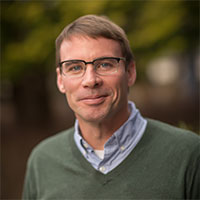
The initiatives are focused on mental health and international social work, two areas that Dean Gary Cuddeback, Ph.D., identified as strengths that could be formalized across social work and interdisciplinary research and professional education, including teaching, study abroad programs and continuing education for alumni and the community.
“Mental health is a local, national and global issue that impacts millions at great interpersonal and societal costs,” Cuddeback says. “As a profession, social work contributes significantly to the mental health workforce, and we need to equip our students to work locally and globally. These initiatives fit well with the expertise of our faculty, meet the demands of our students and are well aligned with VCU’s strategic priorities in a number of different ways.”
Cassie DeSena-Jacobs, D.S.W., LCSW, an assistant professor in teaching and practitioner with more than 18 years of clinical mental health experience, is director of the mental health initiative; Denise Burnette, Ph.D, the school’s Wurtzel Endowed Faculty Chair in Social Work and a three-time recipient of Fulbright appointments, is leading the international initiative.
“There’s been a strong need here at VCU and nationally for mental health,” DeSena-Jacobs says. “Dr. Cuddeback recognized the VCU School of Social Work is primed to meet that need. And then at the same time, we have students who are saying very loudly, ‘We want to be clinicians. We want to work in mental health. What can the School of Social Work do to meet this need?’
“And so it really was this ‘perfect storm’ of a leader with extensive research in mental health – Dr. Cuddeback has been a published researcher for 20 years in mental health – and then students were saying, ‘Hey, I need this.’ And then, fortunately, my areas of expertise are mental health and trauma. So it just kind of came together.”
There’s been a strong need here at VCU and nationally for mental health. ... The VCU School of Social Work is primed to meet that need. ... This is really like a starting point for what's ahead.
– Cassie DeSena-Jacobs, D.S.W., assistant professor in teaching
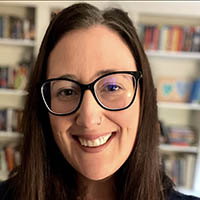
Burnette sees a similar interest and need for international-focused initiatives, as well as the potential for an intersection with mental health as both programs mature. “Absolutely,” she says. “Health and mental health, social services, community well-being, all of these affect people here in the U.S. and abroad. Mental health and substance use disorders are the leading cause of disability world-wide, and there is an urgent need for evidence-based interventions to reduce the burden of these disorders. Another area of overlap is immigration and work with immigrants and refugees in Richmond and its surrounding areas. Owing largely to globalization, international social work is inextricable from local concerns.”
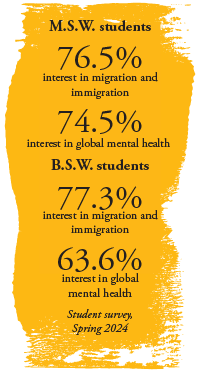
To inform curriculum planning, faculty surveyed M.S.W. and B.S.W. students about their interest in international social work and migration and work with immigrants. About three-quarters of M.S.W. students indicated interest in migration and immigration (76.5%) and global mental health (74.5%) while B.S.W. students selected migration and immigration (77.3%) and global mental health (63.6%) as their second- and third-most areas of interests.
‘Need for mental health isn’t going anywhere’
Mental health initiatives in the 2023-24 academic year included a seven-part webinar on serious mental illness for students, faculty, community-embedded faculty and staff and as a continuing education opportunity for alumni and other professionals in the community. A second, more advanced series will take place in Spring 2025, featuring VCU faculty in the areas of psychiatry, psychopharmacology and at the intersection of bipolar disorder and pregnancy.
“I don’t think we would be able to have a second series if we didn’t have as many interested students, and continued student interest is really what’s driving the series,” DeSena-Jacobs says.
Four clinical skills labs were held in Spring 2024 and four more in Fall 2024, including two accessible virtually for students in the growing online M.S.W. Program format.
“One of the things that I have guaranteed in this role is that there will be at least one clinical skills lab every semester with a serious mental illness or mental health focus,” DeSena-Jacobs says. “When you do clinical work, you work in mental health.”
A 12-credit graduate certificate in mental health is in process, having passed through school governance in Fall 2024. The certificate, which will also be available for non-degree-seeking students, will include two new electives – Neurobiology of Mental Health and Mental Health & Practice – beginning in Spring 2025. Currently, only one school of social work in the country has a graduate certificate in mental health.
“We have these opportunities,” DeSena-Jacobs says. “A mental health certificate program can increase our ability to bring in students. If we can create field placements that are mental health-driven, then that can generate interest from students. If we can create potentially post- grad programming with different jobs, there’s all this incredible potential ahead. The need for mental health isn’t going anywhere. This is really like a starting point for what’s ahead.”
‘Malawi or Laos … let’s talk’
The School of Social Work has signed memoranda of understanding with Mongolia National University of Medical Sciences (MNUMS) School of Public Health and Rajagiri University’s College of Social Sciences (RCSS).
Associate Professor Matthew Bogenschutz, Ph.D., is collaborating with MNUMS faculty to develop and implement a program to improve services for people with disabilities in Mongolia. Based on principles of Virginia Leadership Education in Neurodevelopmental Disabilities (LEND), which Bogentschutz directs, the investigators will survey parents of children with intellectual and developmental disabilities who live in the capital city of Ulaanbaatar and outlying rural areas.
“It will be exciting and impactful work once it gets going, as disability awareness and supports in Mongolia are in their infancy, and much needs to be done,” Bogenschutz says.
Burnette and B.S.W. Program Director Stephanie Odera, Ed.D., will lead an undergraduate study abroad program to RCSS in Kerala, India, during winter break. Students will also join in the International Consortium for Social Development Conference, co-sponsored by the college. The India program extends the school’s recent study abroad opportunities – South Africa (spring break, Associate Professor Maurice Gattis, Ph.D.) and Ghana (summer, Associate Professor Nicole Corley, Ph.D.) – to a new locale and time frame.
Health and mental health, social services, community well-being, all of these affect people here in the U.S. and abroad. Mental health and substance use disorders are the leading cause of disability world-wide.
– Denise Burnette, Ph.D., Wurtzel Endowed Faculty Chair in Social Work
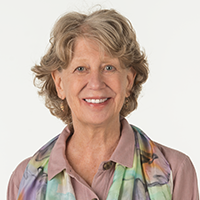
“In developing research partnerships in other parts of the world, I have only worked in low- and middle-income countries. If somebody wants to work in Italy or France, I’m probably not your person,” Burnette says with a laugh. “If somebody wants to go to Malawi or Laos, then we can talk.”
Burnette is also working with faculty colleagues to develop additional educational opportunities such as a graduate certificate and undergraduate minor in international social work and, in the future, international practicum assignments. Finally, she is keen to build a core of bi-lateral student and faculty exchanges to aid in the development of robust research partnerships and opportunities for domestic and international students at VCU to acquire and exchange transferable knowledge and skills.
‘Really powerful … a huge thing’
Both DeSena-Jacobs and Burnette see open horizons for their initiatives – figuratively and literally.
“I think that we are standing on the edge of something really powerful if we’re intentional with the way that we do it,” DeSena- Jacobs says. “I’ve said it a million times, and I’ll say it one more time: The interest from the consumer is so high that it’s just driving the excitement that I have.”
Burnette says, “I am often reminded of the words of the naturalist John Muir: When we try to pick out anything by itself, we find it hitched to everything else in the Universe. It is difficult to imagine more timely or more pressing issues for our profession than those that connect us all.”
School of Social Work's international connections
Maurice Gattis
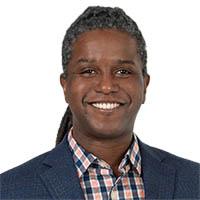

Nicole Corley
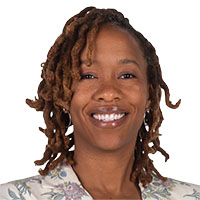

Stephanie Odera
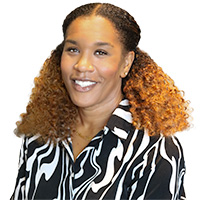

Kyeongmo Kim
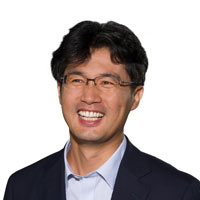

Youngmi Kim
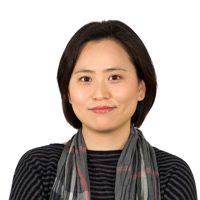

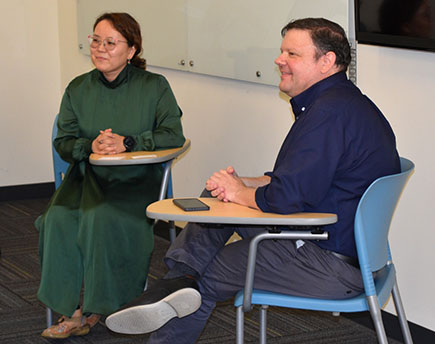
- South Africa: Spring study abroad; led by Associate Professor Maurice N. Gattis, Ph.D.
- Ghana: Summer study abroad; led by Associate Professor Nicole Corley, Ph.D.
- India: Partnership with Rajagiri University, College of Social Sciences, including winter study abroad; led by Professor Denise Burnette, Ph.D., and Stephanie G. Odera, Ed.D.
- South Korea: Exploring study abroad and opportunities for research collaborations and faculty exchanges; led by Associate Professor Kyeongmo Kim, Ph.D., and Professor Youngmi Kim, Ph.D.
- Mongolia: Research partnership with Mongolia National University of Medical Sciences; led by Associate Professor Matthew Bogenschutz, Ph.D.
